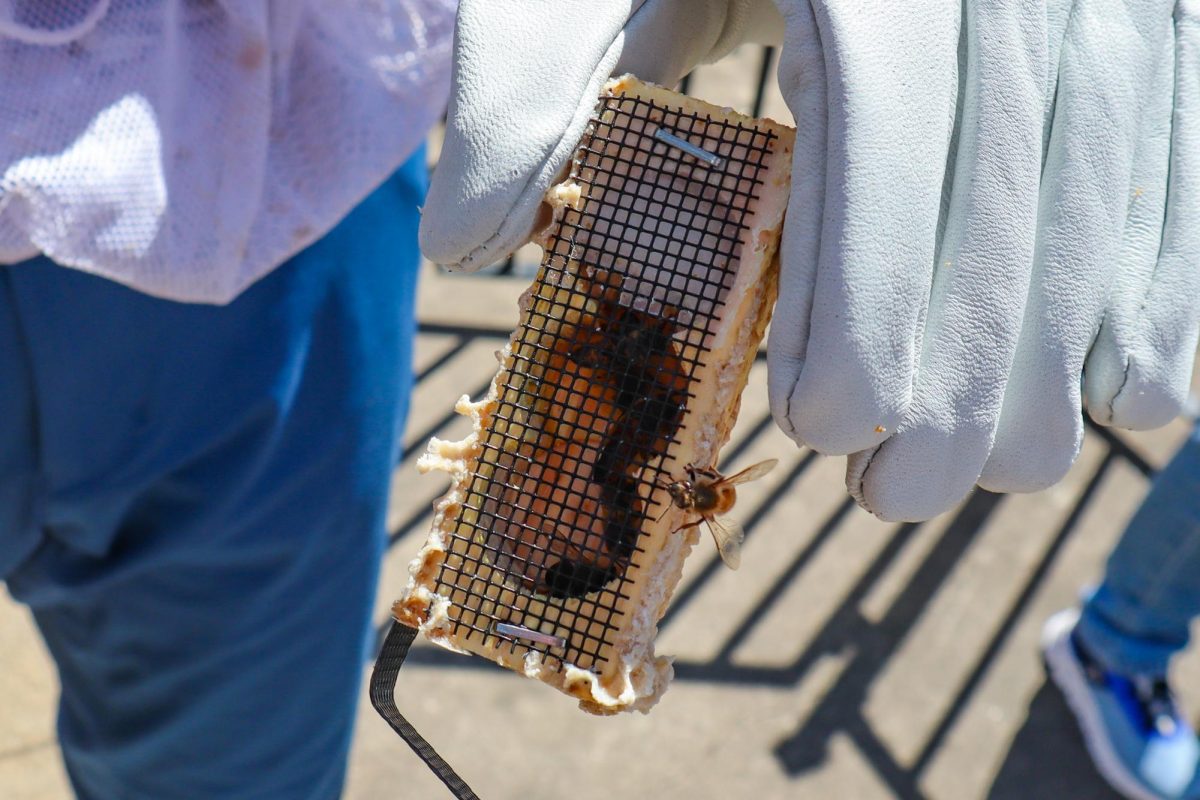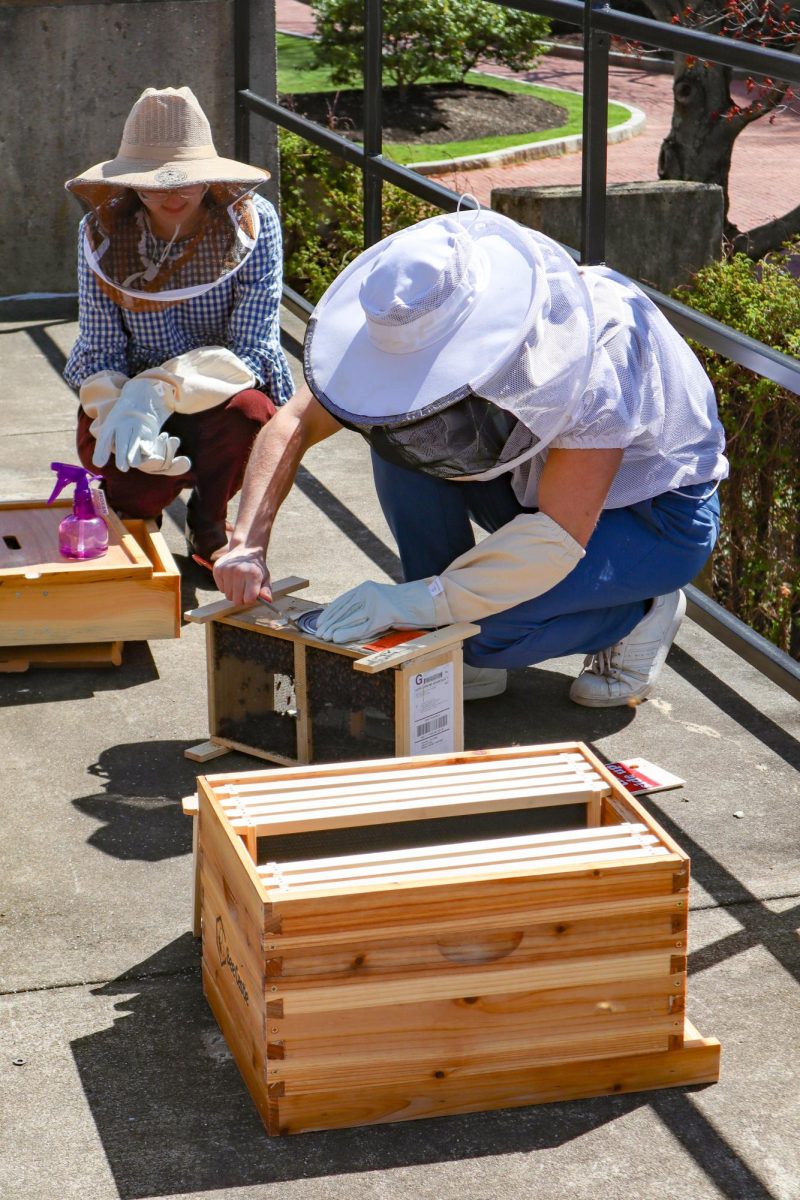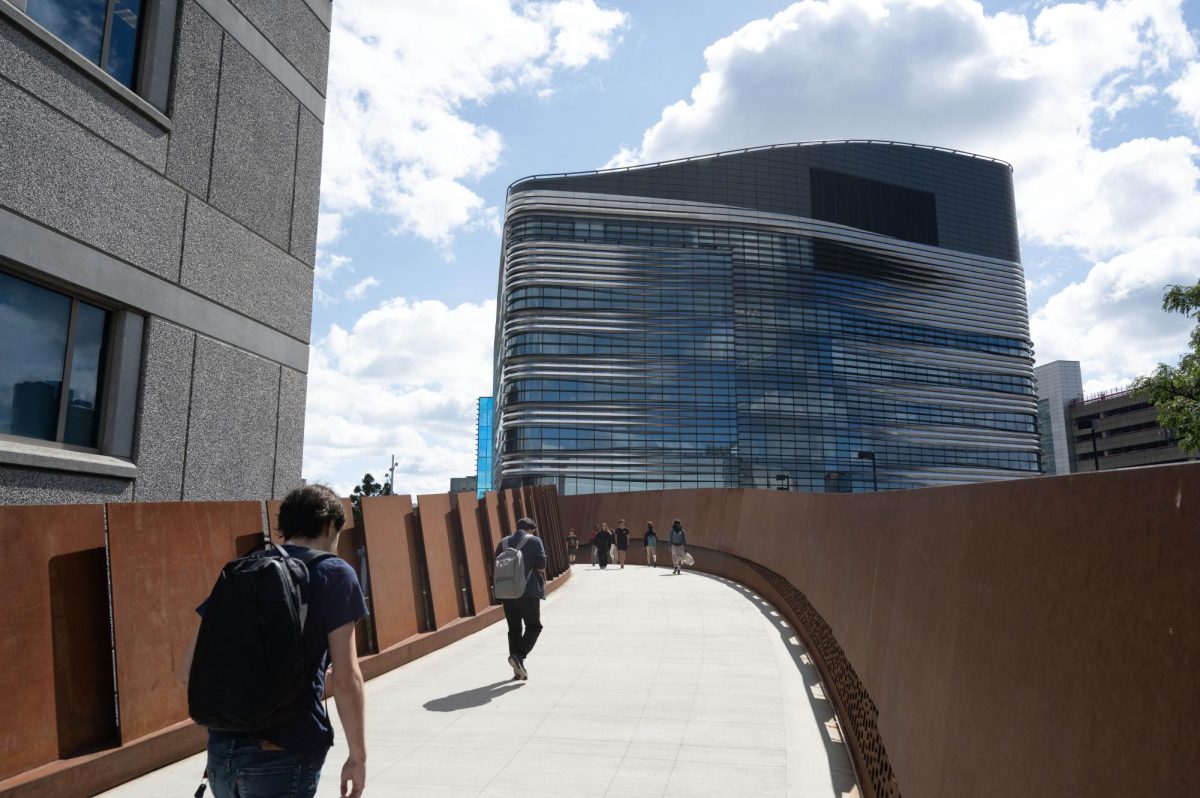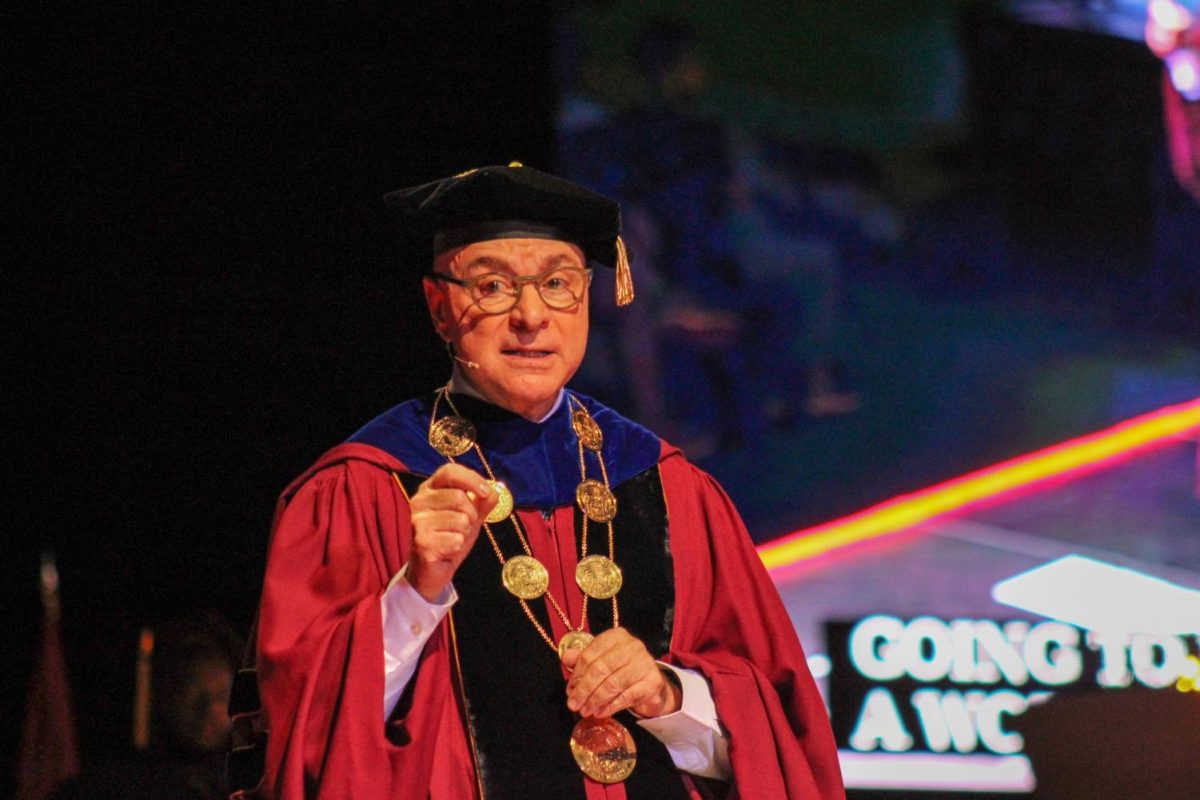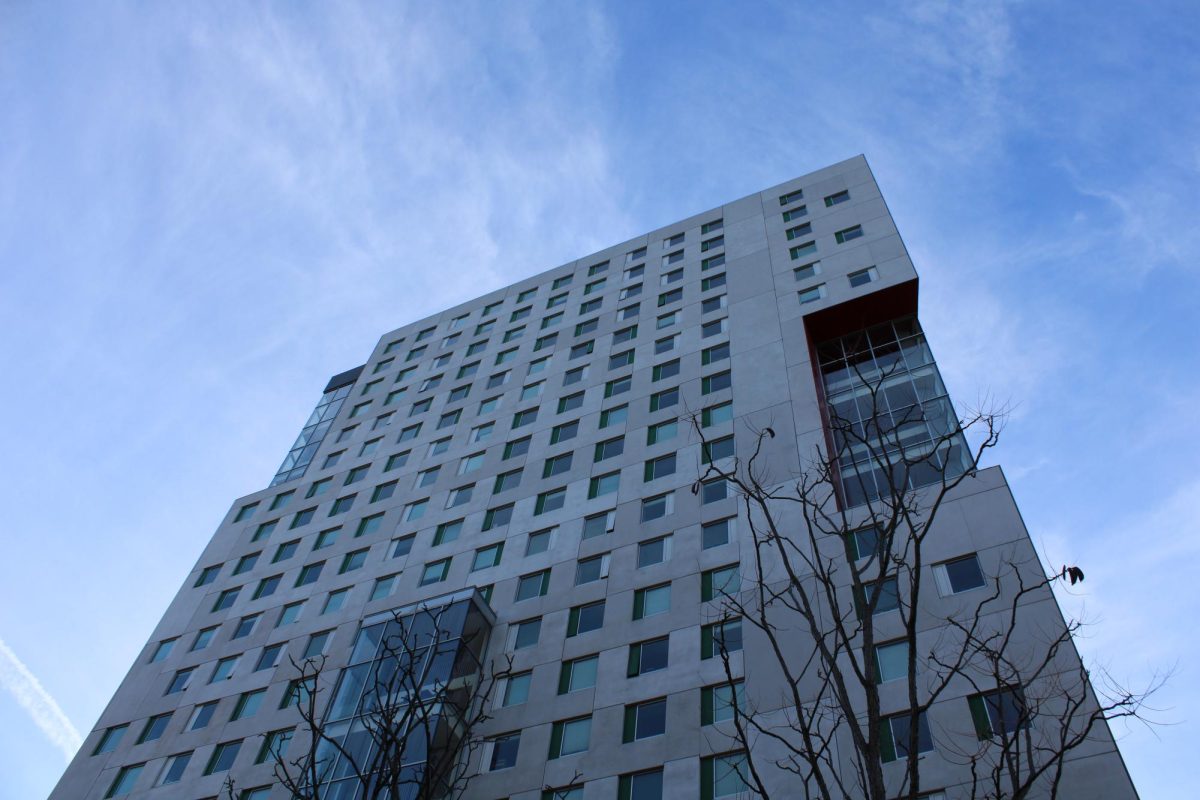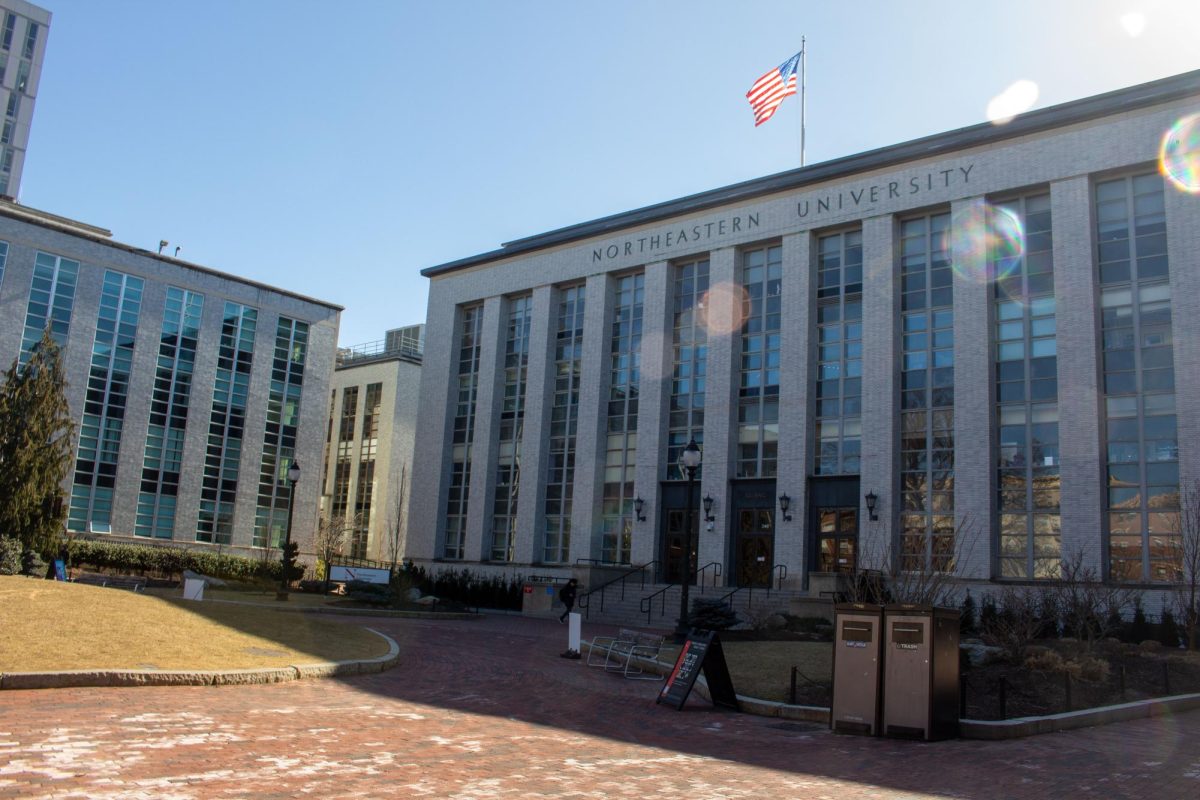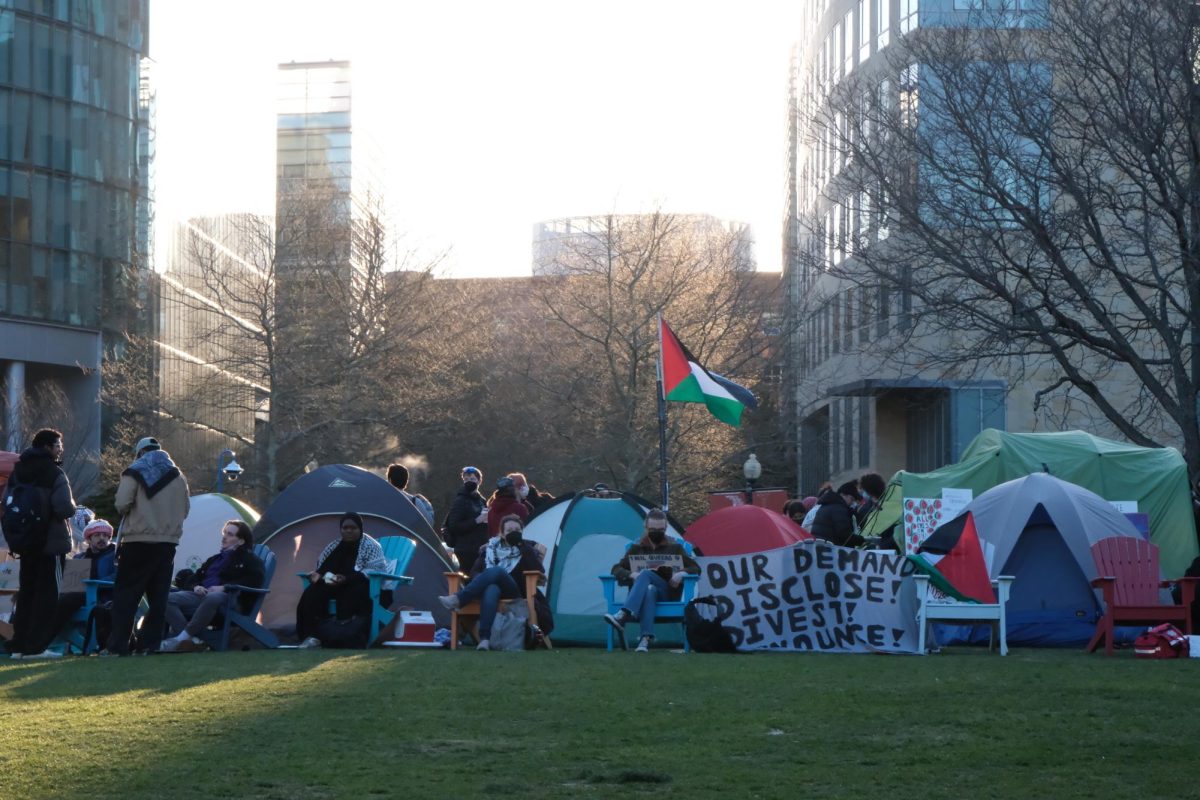In June 2023, the Northeastern University Arboretum hired Avéole, an urban beekeeping company, to install beehives on the Boston campus. This year, the first student-run beehive was installed April 16 by the Bee Society, a student club dedicated to beekeeping and pollinator advocacy.
Bee Society President Connor Martin, a second-year bioengineering major, led the launch event where he and other club members rehoused a colony of honeybees into the club’s hive at the Richardson Plaza clock tower.
The Arboretum purchased the bees from a farm in Georgia, and they took a week to arrive through the postal system, according to Steve Schneider, the director of horticulture and grounds for the Arboretum. The colony had a food source of sugar water inside the shipping container and survived the long journey by being carefully strapped in with all entrances and exits to the box sealed off. After trekking across the country, the colony was finally ready to move into its new home.
Upon opening the box, Martin carefully dug inside, looking for the queen’s nest. Once Martin extracted the queen bee and placed her into the new hive, the rest of the colony flew out and followed the queen to its new home. Martin then tilted the shipment container and gently shook the remaining bees into the hive to encourage them to relocate.
“They’re not very upset right now because they don’t have anything to be upset about,” Martin said after helping the last of the colony into the new hive.
Martin fed the bees a generous amount of sugar water once they had moved in, providing plenty of food as they began their new lives. Eventually, the colony will be able to collect nectar and provide for themselves, but the Bee Society’s leaders said they wanted to ensure the bees would be able to thrive as they settle in.
The majority of attendees were students involved in the Bee Society or the Arboretum, but some non-members also joined to see the event. The hive’s health and progress will be monitored by the Bee Society, and the club’s students will likely collect the hive’s honey at the end of the summer or the beginning of fall.







